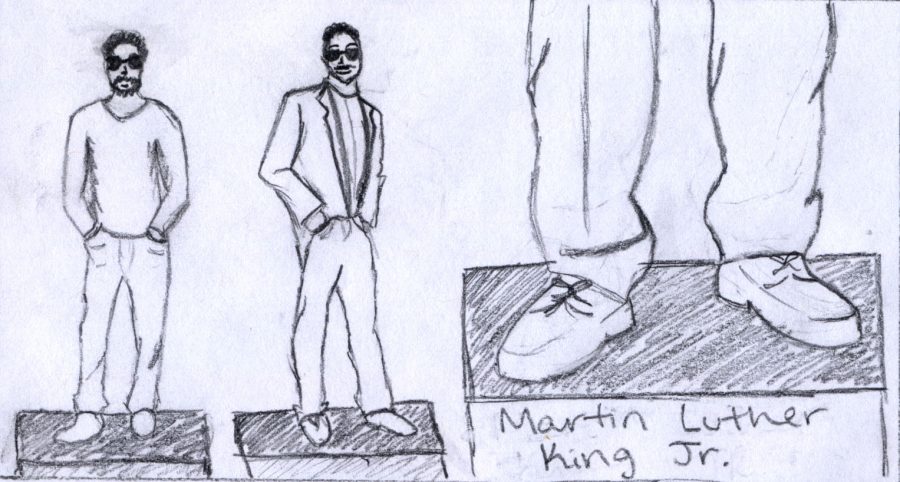Jan. 22, 2014
Editorial Staff Opinion
Rev. Dr. Martin Luther King Jr. was undoubtedly an important figure in American history. The marches and activities that King Jr. organized and participated in changed the course of our country and helped allow freedoms that many Americans enjoy today.
Although his actions increased the number of civil liberties in our country, giving so much attention to King Jr. has led to some other important figures in the fight for civil rights to fall by the wayside. This has led to less widespread education on civil rights issues, which is why other civil rights leaders should get the same amount of attention.
For example, the tragic passing of Nelson Mandela recently brought him to the national spotlight. According to the 2011 South African census, 79.2 percent of South Africa’s population is black; Mandela’s work in civil rights in South Africa led to the end of their racial segregation and allowed black citizens to enjoy the same freedoms as whites.
Although the Nelson Mandela Foundation established July 18 as Nelson Mandela day, it is not recognized as a national holiday, according to United States Office of Personnel Management’s website.
Mandela did receive recognition during his time as a world leader. He was awarded the Nobel Peace Prize in 1993, among many other awards. This is not the case for many lesser known, yet still important, figures in civil rights.
Rev. T.J. Jemison, for example, is a name many may not recognize. He worked closely with King Jr. in creating the Southern Christian Leadership Council. More importantly, Jemison arranged the Baton Rouge bus boycott of 1953, widely recognized as the precursor to the famous Montgomery bus boycott of 1955, during which Rosa Parks was arrested.
Although Jemison’s works were equally as important, they are less taught, leaving people ignorant of his achievements and sacrifices for the cause of civil rights. His November 2013 death was vastly under-reported in the media.
The epidemic of under-education about the wide variety of civil rights leaders in the United States also extends into the 21st century. Some leaders such as Cornel West and Henry Louis Gates Jr. garner attention for their causes by serving as talking heads on television, but other civil rights leaders continue to go largely and undeservedly unnoticed.
Part of the lack of attention placed on present-day civil rights leaders may stem from the popularization of the Internet. Some advocacy groups are becoming more and more Internet-based, which can lead to the website becoming the face of the organization instead of the leader of the group.
For example, James Rucker, co-founded ColorOfChange.com, a web group that formed shortly after Hurricane Katrina. Its mission is “to empower our members – Black Americans and our allies – to make government more responsive to the concerns of Black Americans and to bring about positive political and social change for everyone,” according to its website.
Rucker also held positions with MoveOn.org, another web-based advocacy group.
Not recognizing these civil rights leaders causes a fundamental problem. Without educating people on these other advocates and their causes, some causes can go largely unnoticed.
It would be nearly impossible to discuss every civil rights leader in school or through national holidays, but people still should be encouraged to do research of their own and see all sides of all civil rights issues. The encouragement should start at home and in the classroom, and in this age of easy-access information, the research part should come easy.
In a world where a majority of civil rights leaders, past and present, unjustifiably go under the radar, citizens should push themselves to learn more about these leaders and their causes. Greater education on these issues can lead to greater action on issues of civil liberties.
A world where people are truly considered equal and free is a world with more educated citizens.


